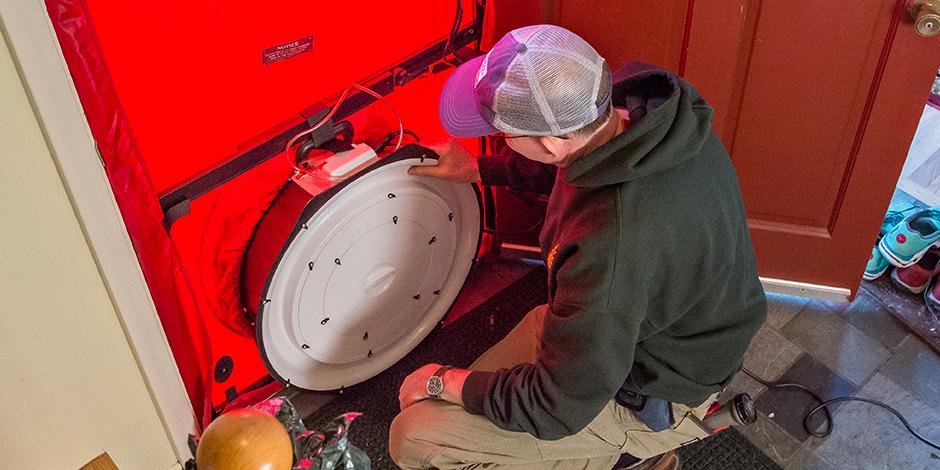
By Paul Fleckenstein, Co-op Efficiency Program Manager
With the rising cost of fossil fuel, the need to reduce energy use and make our homes more efficient is more urgent than ever. Where do you start and what is the best approach?
In the last 8 years, the Energy Co-op's efficiency team has performed hundreds of energy audits and weatherization projects for homeowners seeking greater home energy efficiency and ways to save money on heating and cooling costs. Because we offer our expertise to recommend the best strategies to reach efficiency goals, we consider ourselves "energy coaches."
According to Vermont Housing Data the median age of a home in Vermont is 1974, which means that about 50% of the housing stock in Vermont is more than 50 years old. For older homes that are leaky and poorly insulated, we sometimes need to call out the weatherization "energy ambulance" to fix multiple problems at once.
In other cases, our approach is finding the right balance of weatherization improvements, ventilation upgrades, and heating equipment installation to meet goals that may be phased-in over several years to fit the homeowner's budget.
To address your specific concerns, our tools for audits and energy upgrades include:
- Inspection: assess insulation, air leakage, health and safety, and maintenance issues
- Heating system evaluation: confirm proper operation and safety, and assess whether it is the best type of system for your home
- Blower door: to assess air leakage and verify air sealing measures
- Infrared camera: to identify gaps in insulation and hidden air leaks
After our in-person energy audit, we make sure all your questions are answered and then we recommend priorities for investments that will save the most money on fuel costs and provide the greatest reduction of energy use. Based on the age of the home, the condition of critical systems and infrastructure like insulation and air sealing, these recommendations can cover a wide range of options:
- Air sealing doors and windows to eliminate drafts and air leaks
- Improving insulation to keep the cold out in winter and the heat hot out in summer
- Upgrading your heating system and/or hot water heater to save money on your monthly heating and cooling bills
- If your home is suitable, we often recommend a heat pump installation to reduce fossil fuel use from your primary heating system and add air conditioning benefits to keep cool in summer.
Not every home can get to "net zero" energy use, but knowing where to start on your home efficiency journey is sometimes the most difficult part. Our award-winning Efficiency Team is here to help.
